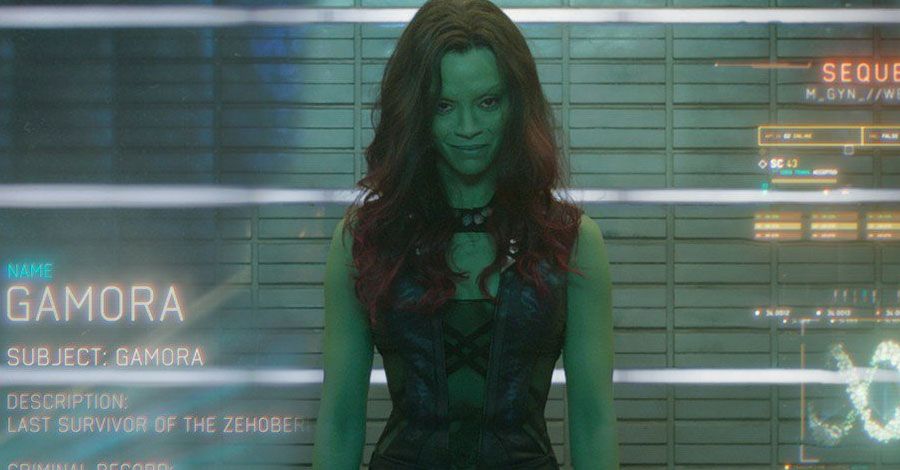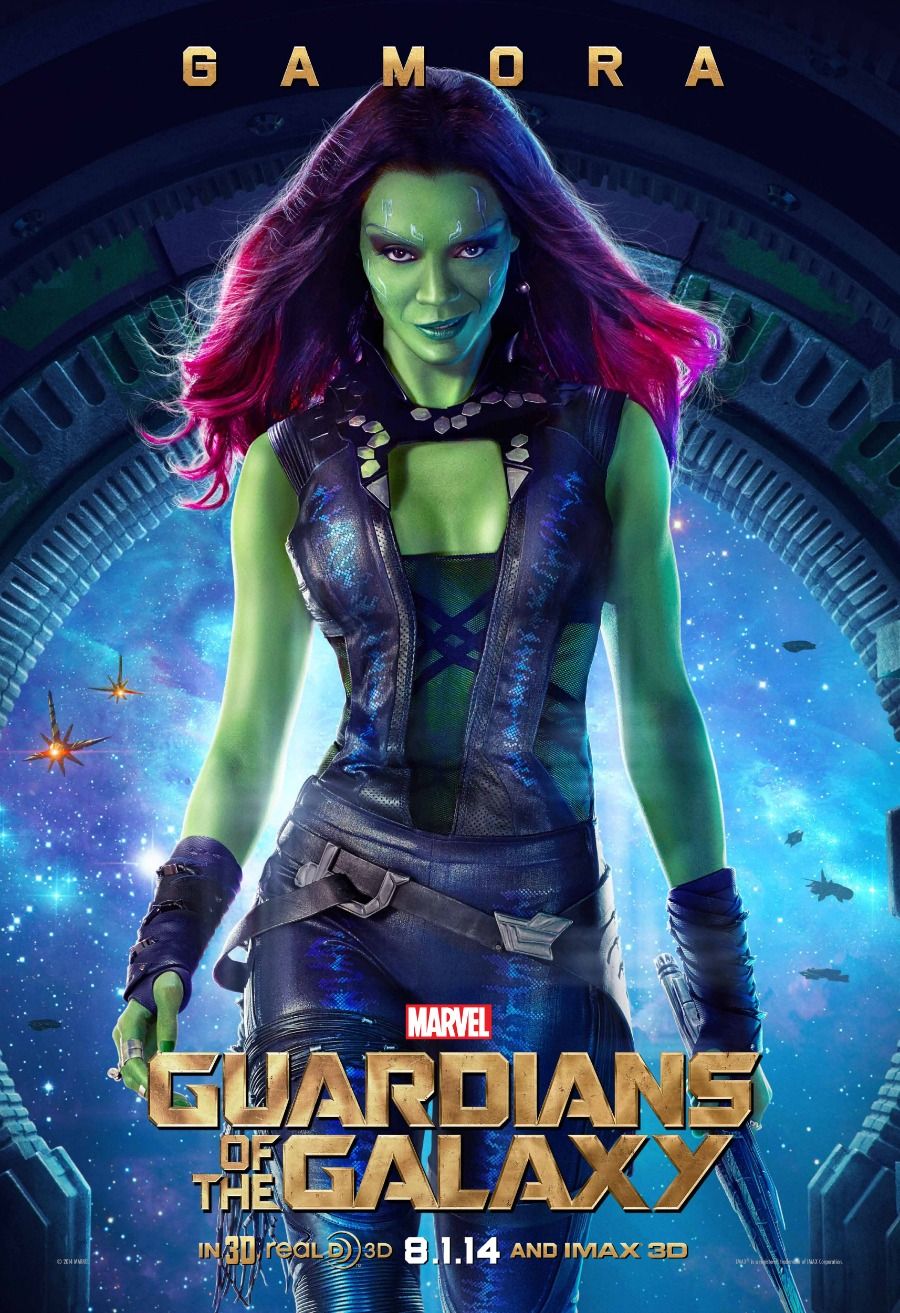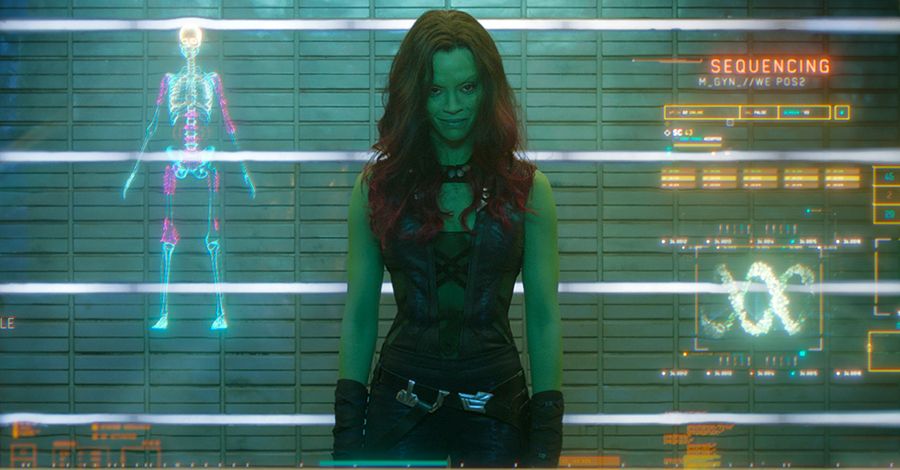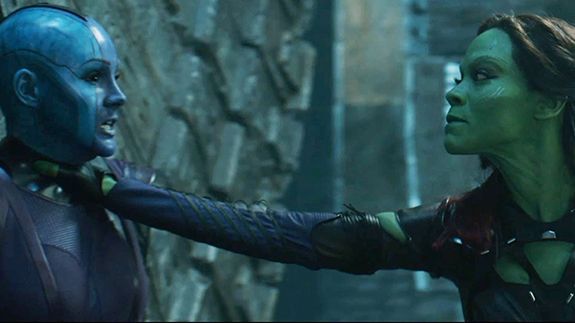With only four episodes under its belt, "Marvel's Agent Carter" continues to make waves in the superhero film swimming pool. As the first female-led live-action property of the Marvel Studios era, Carter has drawn a lot of attention to the media giant's portrayal of women on screen. In light of recent revelations in "The Blitzkrieg Button", it looks as if "Agent Carter" might even go so far as to explore the roots of one of the Marvel Cinematic Universe's most formidable female fighters.
Super Smash Sisters: Analyzing the MCU's Lady Brawlers, Part 1 -- Black Widow
In my last article, I took an in-depth look at Black Widow and the way her fighting style reflects her character. For Gamora, we don't have as far a departure from Black Widow as one might think, considering "Guardians of the Galaxy" takes place some thousands of lightyears away from Earth. Below, we'll explore how Gamora, the Mad Titan Thanos' favorite daughter, stacks up with her own shady past and extensive combat training.
Gamora
With only one film under her belt (so far), Gamora provides less fodder for analysis, but her role in "Guardians of the Galaxy" is just as important nonetheless. Like Black Widow, she is the only woman on her team, and is just as talented. Plus, she has a few power ups that help her out along the way. Additionally, she, too, is probably one of the only members of the team with extensive training -- to be an assassin, at least.
Let's make one thing clear: of all the female protagonists in this discussion, Gamora is the only one with explicit "super" powers. Though Black Widow has extended longevity and enhanced durability in the comics, her movie counterpart has no such advantages. Gamora, on the other hand, has cybernetic enhancements, at least according to her rap sheet. Hers don't have the same outwardly-visible nature as Nebula's, but they are just as effective, giving her augmented strength, increased durability and the ability to leap long distances. With this, she is able to bounce between catwalks in the prison sequence and maintain a grip on Nebula's weapon during the final fight without lasting injuries or decreased stamina.
However, Gamora is much more than her abilities. Her confrontation with Nebula, for instance, speaks to her resolve and the depth of her caring for her sister. No matter how hard Nebula drives at her, no matter how irate she becomes, Gamora refuses to fight back with anything more than self defense and kind words. When Nebula plunges off the Dark Aster's side, Gamora even reaches to help her up before Nebula decides to let go and drop off instead. After this physically and emotionally exhausting endeavor, Gamora returns immediately to her task without a moment's hesitation, allowing her team entry into Ronan's chamber.
It's this combination of stubbornness and caring that put her on the path that led her to the Guardians in the first place. Both of these elements factor into her decision to leave Thanos despite the obvious dangers in doing so, and they drive her to persist even after Peter Quill makes it difficult for her to remain with the Guardians. This much is clear from her first confrontation with Quill, a small chase that highlights not only those traits but the way she uses her skills as her expression of anger. Throughout most of the film, Gamora's fury is restrained, reserved to clipped lines of dialogue and endless frustration with the other characters. In her fight sequences, however, she lets loose, executing her moves with careful precision and a fierceness that can only be attributed to her rage. She takes Quill out initially with cold efficiency, but her anger seeps into her approach when he gives chase; she resorts to total brawling, then, coming very close to killing Quill at one point and at least attempting to do the same to Groot. She even hurls Rocket into a glass structure, something that could have easily done him great harm. What's more, she screams in rage as she goes -- notably, a trait she shares with no other characters in our discussion. It's this blind rage, and partially her overconfidence, that allows Quill to ultimately overthrow her.
The prison sequence also finds Gamora employing her anger. Her skill certainly comes into play, but her rage puts a cruel edge on her execution, like her exchange with the guard before she breaks his arm. She's able to eliminate her competition with ease, disabling a handful of guards within seconds, before launching herself back to the guard tower to wrap up her part in the ragtag team's escape plan.
Also like Black Widow, Gamora largely relies on her body as her main weapon, though she does occasionally break out a few toys. Her go-to is used only in a scene or two: a sword-like device she uses to hack Groot's arms off. Her use of it is swift, capable and deft, employed to efficiently disarm Groot when she realizes she is outnumbered and out-gunned. She brings this back in her duel with Nebula for the same purpose; her sword is an equalizer to balance her against Nebula's two. As such, in her brief fight sequences, it appears that she only uses tech when she absolutely must.
Of course, none of this means there's no room for development in Gamora's character. On the contrary, her fight with Nebula proves that she is losing her rough edge by the end of the film, and her final scene with Quill shows that she can and will allow herself to relax. However lessened her rage may be, Gamora's skills remain intact, setting her up for a character arc very much like Black Widow's in "Guardians of the Galaxy 2."
Boiled down to their most essential characteristics, Black Widow and Gamora are more-or-less the same character: serious spy/assassins with questionable pasts and impeccable training that are trying to make up for their sins. Even other MCU female brawlers like Melinda May are not exempt from this particular grouping of traits. Up through the first season of "Agents of S.H.I.E.L.D.," the MCU had one template for their female fighters -- and that was it. Where the male Avengers have a variety of styles, strengths and personalities, the ladies -- especially Black Widow and Gamora -- were strong-armed into the "straight man" role, if you will.
Up last, but certainly not least: Agent Peggy Carter.




